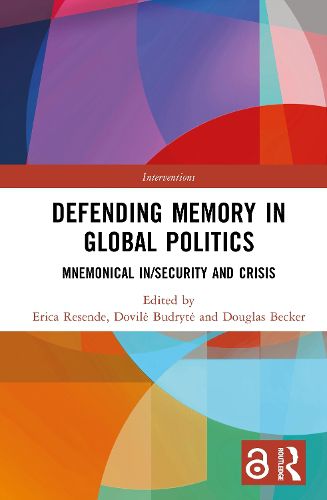Readings Newsletter
Become a Readings Member to make your shopping experience even easier.
Sign in or sign up for free!
You’re not far away from qualifying for FREE standard shipping within Australia
You’ve qualified for FREE standard shipping within Australia
The cart is loading…






This book explores the securitization of memory in times of crisis using overlooked cases from the Global South and the Global North.
Instead of focusing exclusively on national identities and state actors, it explores various identities, including substate and transnational actors, and their role in "defending memory" during times of crisis. Embracing a broad definition of conflict that includes mnemonic, societal and armed conflicts, the expert contributors engage with political trauma, demonstrating its power to evoke commemorations and other shared practices of collective remembrance, shaping and perpetuating collective memory, the construction of national and transnational identities, national interests and foreign policy behaviors.
The book contributes to the fields of memory and trauma studies and ontological security in international relations. It will also be of interest to scholars and students of political science, sociology, international relations, history, nationalism and identity, international studies, cultural geography, social psychology, cultural studies and anthropology.
$9.00 standard shipping within Australia
FREE standard shipping within Australia for orders over $100.00
Express & International shipping calculated at checkout
This book explores the securitization of memory in times of crisis using overlooked cases from the Global South and the Global North.
Instead of focusing exclusively on national identities and state actors, it explores various identities, including substate and transnational actors, and their role in "defending memory" during times of crisis. Embracing a broad definition of conflict that includes mnemonic, societal and armed conflicts, the expert contributors engage with political trauma, demonstrating its power to evoke commemorations and other shared practices of collective remembrance, shaping and perpetuating collective memory, the construction of national and transnational identities, national interests and foreign policy behaviors.
The book contributes to the fields of memory and trauma studies and ontological security in international relations. It will also be of interest to scholars and students of political science, sociology, international relations, history, nationalism and identity, international studies, cultural geography, social psychology, cultural studies and anthropology.